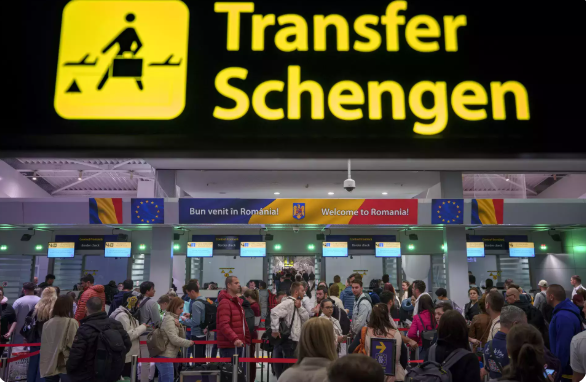Introduction
Bulgaria and Romania European Union’s decision to welcome Bulgaria and Romania as full members of the Schengen travel zone marks a significant milestone for the bloc’s integration. After years of anticipation and diplomatic negotiations, this inclusion symbolizes a step toward greater unity, security, and mobility within Europe.
This article delves into the implications of Bulgaria and Romania’s accession to Schengen, its impact on the EU, and the challenges and opportunities it presents.
What is the Schengen Travel Zone?
The Schengen travel zone is one of the EU’s cornerstone policies, enabling passport-free travel across its member countries.
- Origins: Established in 1985, the Schengen Agreement aimed to remove internal border checks within Europe.
- Current Composition: It currently includes 27 countries, encompassing EU and non-EU nations like Norway and Switzerland.
- Benefits: Schengen facilitates seamless trade, tourism, and mobility while enhancing cross-border cooperation in law enforcement and security.
 For the more information click on this link
For the more information click on this link
Journey to Schengen Membership
Initial Applications
Bulgaria and Romania joined the EU in 2007 and expressed immediate interest in becoming part of the Schengen area.
- Provisional Status: Despite fulfilling many technical criteria, their applications were delayed due to political and security concerns raised by existing members.
Key Hurdles
- Corruption and Judicial Reform: Critics cited concerns about corruption and the need for judicial reforms in both countries.
- Migration Pressures: The 2015 migration crisis raised fears about border management capabilities.
- Political Resistance: Some EU nations, notably the Netherlands and Austria, vetoed their accession, citing security and governance issues.
Diplomatic Efforts
Over the years, Bulgaria and Romania worked to address these concerns through:
- Enhanced Border Security: Investments in modernizing border infrastructure and surveillance.
- Judicial Reforms: Strengthening anti-corruption measures and judicial independence.
- Bilateral Negotiations: Engaging with EU leaders to build support for their Schengen bids.
Recent Developments
EU’s Green Light
In December 2024, the European Council approved the full inclusion of Bulgaria and Romania into the Schengen area.
- Unanimous Decision: After years of division, member states reached a consensus, signaling a shift in EU dynamics.
- Implementation Timeline: Both countries are set to remove internal border controls with Schengen countries by mid-2025.
Key Factors Behind Approval
- Improved Governance: Progress in addressing corruption and judicial transparency reassured skeptics.
- Strategic Importance: Bulgaria and Romania’s geographical location strengthens Schengen’s external border security.
- Economic Benefits: Their inclusion promises economic growth and enhanced connectivity within the EU.
Impact on Bulgaria and Romania
Economic Growth
- Trade Expansion: Seamless border crossings will boost exports and imports, reducing logistical costs.
- Tourism Growth: Easier travel will attract more tourists, fostering local economies.
- Foreign Investment: Enhanced mobility and security make both countries more attractive to investors.
Social Benefits
- Increased Mobility: Citizens will enjoy visa-free travel across the Schengen zone, enhancing personal and professional opportunities.
- Strengthened European Identity: Inclusion reinforces their integration into the European community.
Challenges Ahead
- Border Management: As external borders of Schengen, Bulgaria and Romania face increased responsibility for managing migration and security.
- Public Expectations: Meeting domestic expectations for tangible benefits may prove challenging.
Implications for the European Union
Strengthening Unity
- Demonstration of Solidarity: The decision underscores the EU’s commitment to inclusion and cooperation.
- Addressing Internal Divisions: Overcoming long-standing resistance demonstrates the bloc’s ability to resolve internal disputes.
Enhanced Security
- Integrated Border Management: Bulgaria and Romania’s inclusion enhances the EU’s capacity to monitor and control external borders.
- Data Sharing: Their integration into Schengen’s security systems bolsters cross-border efforts to combat crime and terrorism.
Economic Opportunities
- Single Market Expansion: Easier movement of goods and services strengthens the EU’s economic cohesion.
- Improved Connectivity: Enhanced transport links benefit businesses and individuals across the continent.
Geopolitical Significance
Strategic Location
Bulgaria and Romania’s geographic position at the EU’s southeastern edge makes their Schengen membership geopolitically significant.
- Bridge to the Balkans: Their inclusion strengthens EU ties with neighboring non-EU countries.
- Countering External Threats: A more secure southeastern border enhances Europe’s resilience against external threats.
Signal to Candidate Countries
The decision sends a positive message to EU candidate countries like Serbia, Montenegro, and North Macedonia about the rewards of aligning with EU values and policies.
Public and Political Reactions
In Bulgaria and Romania
- Celebration of Success: Citizens and leaders have hailed the decision as a validation of their efforts.
- Calls for Vigilance: Some critics emphasize the need to maintain reforms and address remaining challenges.
Within the EU
- Support from Member States: Proponents view the decision as a step toward a more inclusive and united Europe.
- Lingering Skepticism: Some countries stress the importance of ongoing monitoring to ensure compliance with Schengen standards.
Challenges and Risks
Migration Management
As external Schengen members, Bulgaria and Romania must handle:
- Increased Migration Pressures: Managing migration flows from neighboring regions.
- Coordination with EU Agencies: Collaborating with Frontex and other EU bodies to ensure effective border management.
 For the more information click on this link
For the more information click on this link
Maintaining Reforms
Sustaining progress in areas like judicial independence and anti-corruption measures remains crucial to building trust and credibility.
Balancing Expectations
Managing public and political expectations will be key to maintaining domestic support for Schengen membership.
Conclusion
The inclusion of Bulgaria and Romania in the Schengen travel zone marks a historic achievement for both countries and the European Union. It reflects the EU’s commitment to integration and solidarity, while also presenting new challenges and opportunities for the bloc and its newest Schengen members.
As Bulgaria and Romania prepare to fully embrace their roles within Schengen, their success will depend on sustained reforms, effective border management, and continued cooperation with EU partners. This milestone not only strengthens Europe’s unity but also sets the stage for a more inclusive and dynamic future. ALSO READ:- Hindus Indian-Americans Protest Against Attacks on Bangladesh: A Call for Justice and Unity 2024




